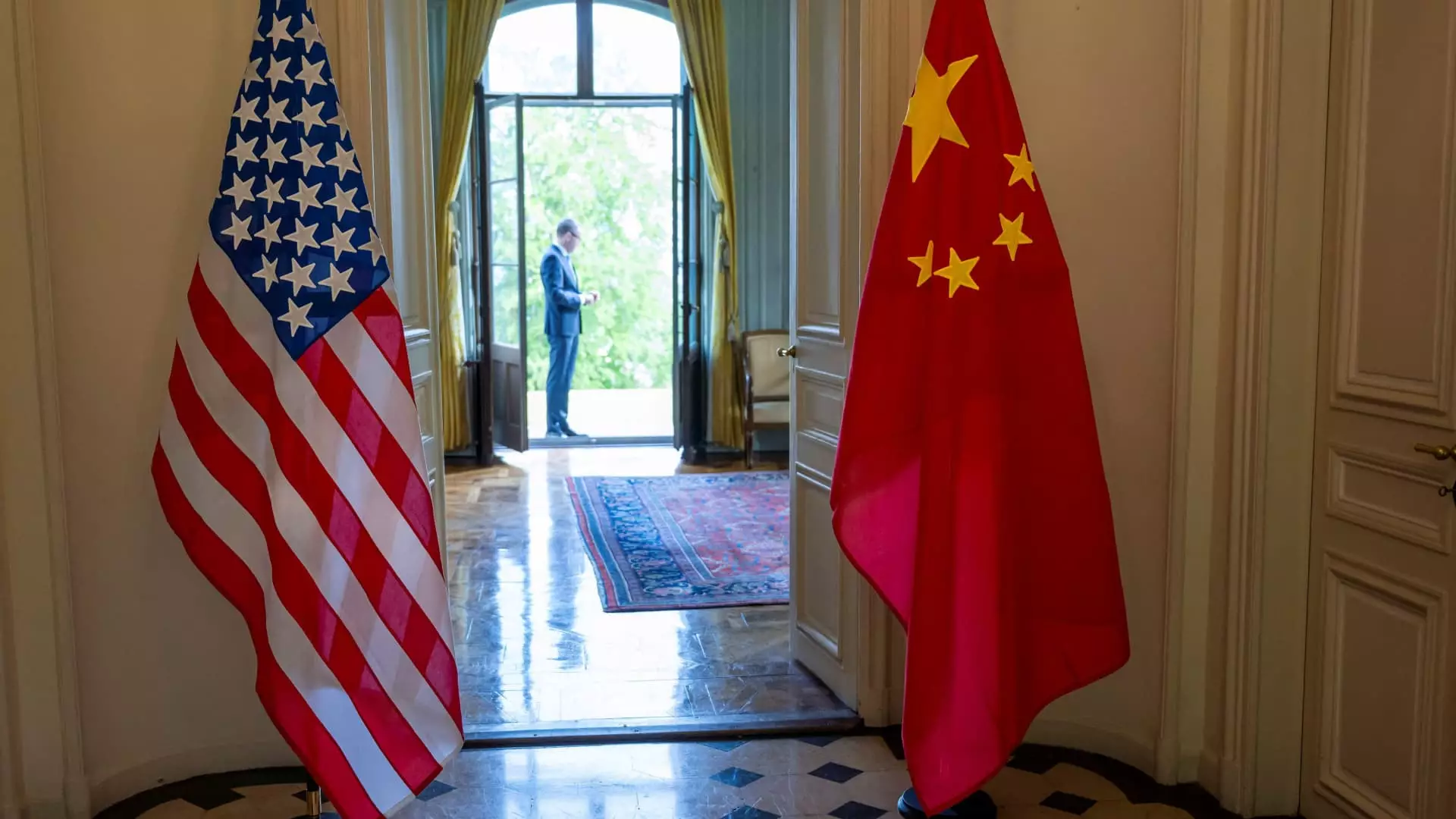In the world of global economics, few relationships are as crucial—and fraught—with tension as that between the United States and China. Recent statements from U.S. Treasury Secretary Scott Bessent reveal a stark reality: the once-promising dialogue regarding trade has hit a significant bump in the road. Bessent candidly noted that the trade talks are “a bit stalled,” signaling to observers that cooling temperatures could soon turn into a full-blown freeze if the leaders of both nations do not engage directly.
This stagnation raises eyebrows not just amongst economists but also among rhetorical analysts who understand the deeper implications of physical talks. When one considers the interwoven fabric of technology, tariffs, and international relations, one can only wonder: What happens when the diplomatic machinery that has kept these two titans in check begins to corrode and malfunction? It seems as if the complex web of negotiations requires not just the voice of a bureaucrat, but a call to action from the architects of policy themselves—President Donald Trump and President Xi Jinping.
Promises of Progress and Underlying Tensions
Not long ago, there was a flicker of hope for a breakthrough agreement when both nations reached a consensus in Switzerland to roll back daunting tariffs by more than 100% for a brief respite of 90 days. However, this temporary easing of trade hostilities did little to quell the simmering resentment on both sides. The United States continues to impose technology restrictions on China, actions that are perceived as confrontational rather than conciliatory, all while China has held fast to its protectionist measures regarding rare earths, a point that was illustrated by Chinese Ministry of Commerce spokesperson He Yongqian.
What does this mean for ordinary citizens in both countries? As tech restrictions tighten and reciprocal actions are taken, the consumers and industries that rely on healthy bilateral trade could find themselves caught in the crossfire. The rhetoric surrounding these policies often overshadows the larger, more devastating economic outcomes that are felt at grassroots levels—job losses, increased consumer prices, and diminished opportunities.
Beneath the Surface: Communication Gaps and Geopolitical Tensions
The back-and-forth communications have not yielded any significant results, leading many to question whether these talks are merely performative. In the wake of shouting matches via tweets and press conferences, the merits of face-to-face dialogue seem more significant. This sentiment is echoed by analysts who suggest that China may only be amenable to conversations with the U.S. if it can be assured that no surprises await them. This mistrust—a byproduct of the incessant wash of tariffs, export bans, and diplomatic sniping—does nothing to foster a productive negotiating atmosphere.
The lingering questions concerning the U.S. decision to revoke visas for Chinese students further complicate matters. While aimed at addressing national security concerns, such actions can further alienate a population that serves as both a financial boon and a cultural bridge. The Chinese government has swiftly condemned this decision, deeming it “fully unjustified,” asserting that it further complicates an already tumultuous relationship.
A Call for Pragmatism and Unity
As pressures mount from various fronts, what we need now is a mature acknowledgment from both nations that cooperation supersedes competition in times of global crisis. The world must remember that the destinies of the United States and China are inexorably tied, shaped by history, trade, and mutual interests. It’s imperative that both leaders bring a sense of pragmatism to the proverbial table and recognize that a trade war is neither beneficial to global stability nor to their respective nation’s economies.
Yet, therein lies a paradox: Can two nations entrenched in a battle of ideological supremacy truly find common ground? If history teaches us anything, it is that diplomacy often flourishes not just in times of peace but in crises, where compromise is the only path toward mutual benefit. As we stand at the precipice of possible escalation, one can only hope that both countries will choose to lean into dialogue rather than retreat into silence.

